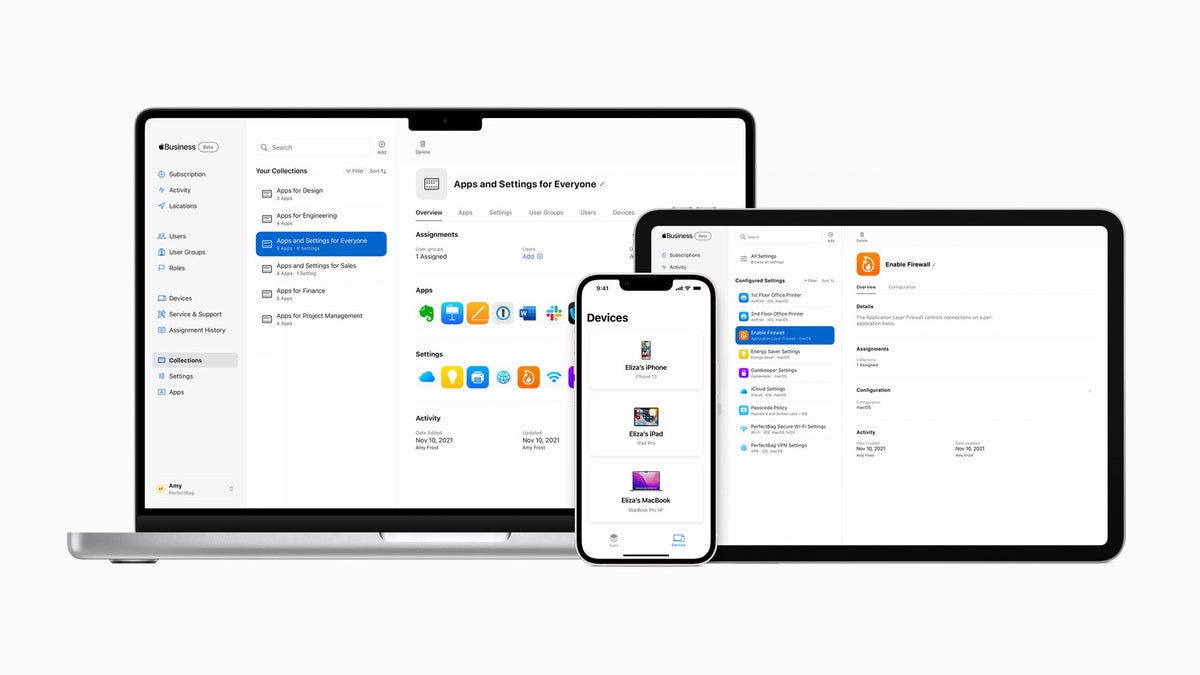Although 65% of managed service providers (MSPs) expect their business customers to increase the use of Macs over the next 12 months, many companies may not be managing their devices well, according to new survey data from Addigy.
Apple is the only vendor to see market share growth in both PC and mobile devices during the past year, which has translated into growing Mac market share even as the overall PC market declines.
Yet more proof of Apple’s growth in enterprise IT
Moving out of the current slump, Apple’s advantage is that next-generation employees already prefer the company, certainly in the US. Those born after 1996 now represent around 34% of US iPhone owners, which makes them far more likely to use a Mac.
That’s reflected in the world of MSPs, Addigy explains. It claims the number of Apple devices in use across managed devices has also significantly increased in the last year; 76.1% of MSPs report an increase in the number of Apple devices in their fleets.
It’s also interesting the extent to which this growing use comes from the top, with C-suite executives now the second-largest group of Apple users in the work place among Addigy survey respondents.
Bias threatens enterprise security
That’s an important demographic, of course, given that the data held on devices used by corporate leaders is valuable. “Devices used by company executives are more likely to contain valuable and confidential information,” Addigy said. “This makes them more vulnerable to hacking.”
The problem is that in many cases IT has not been securing these systems effectively, with a sizeable number (34%) of the survey sample group believing Macs to be so secure they need “very little day-to-day management."
That reflects a prevalent feeling among Apple users (and those who’ve never used Apple), but who don’t quite understand the platform. And while it is true Apple’s security is good, it is not completely foolproof.
As the number of high-value targets using Apple devices grows, all of Cupertino’s platforms have become prime targets for hackers chasing the money they can raise through successful exploits. This has generated a significant increase in the number of attacks against Apple’s platforms and underscores the need to use the rich ecosystem of device management services available to support an Apple-centric enterprise.
Security delivered after a bad outcome will never match security implementations made before bad news occurs, and we have seen an acceleration in attempts to protect the Apple enterprise.
Addigy, which offers an Apple device management service that can be used by MSPs to manage devices for their clients, also notes its own data shows that those MSPs who choose to offer effective support for Apple devices “enjoy larger annual revenue," in part because they can charge more per customer and device.
Apple Business Manager
The world of Apple MDM is relatively complex; in order to support the ecosystem, Apple gives third-party services access to a slew of APIs for device management. These give the many companies in the space — such as Addigy, Jamf, Kandji, JumpCloud, Hexnode or, indeed, Apple itself in the form of Apple Business Essentials — the tools they need to manage and protect their hardware.
That means user and device management, remote wipe, console-based device tracking, location-based application control, remote app deployment, permissions management and more.
To get devices linked up to these systems, they have to be enrolled via Apple Business Manager (ABM) or Apple Schools Manager (ASM), after which they can be managed using a device management solution.
But the constant in these scenarios is ABM or ASM. That’s why Addigy’s discovery that 57.9% of MSPs don’t even use Apple Business Manager raises a red flag.
To me, it suggests that many devices currently in use across enterprise fleets are inadequately protected.
It also hints that existing growth in the Apple MDM market is nowhere near its peak, as over half of the devices currently deployed in business aren’t effectively managed, which requires ABM or ASM.
Apple’s accelerating status in enterprise IT is raising a lot of opportunities for the wider ecosystem surrounding management and deployment. But it is possible some existing deployments are being poorly managed and poorly secured.
That feels like an avoidable error, given availability of solutions to manage and lockdown Apple’s platforms.
Please follow me on Mastodon, or join me in the AppleHolic’s bar & grill and Apple Discussions groups on MeWe.






